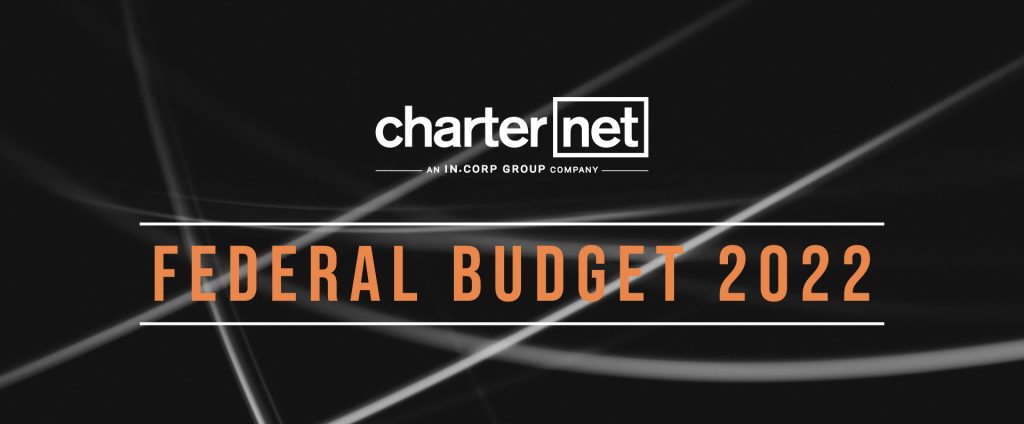Uncategorized
Federal Budget 2022
|
Talking Points
|
The Treasurer delivered the Federal Budget on Tuesday 29 March 2022.
A key focus of this budget is relief from cost-of-living pressures, with the pandemic, the conflict in Ukraine and extreme weather events putting an upward pressure on the cost of goods.
In relation to small businesses, this year’s budget includes greater tax deductions for expenses incurred on external training courses provided to their employees and for costs incurred on business expenses and depreciating assets that support digital adoption, such as portable payment devices, cyber security systems or subscriptions to cloud-based services.
This budget also demonstrates the Government’s commitment to research, innovation and technology, with the expansion of the ‘patent box’ initiative that announced in the 2021-22 Budget.
See our summary of key announcements for small to medium businesses across various industries, and individual income earners below.
Support for Individual Taxpayers
- From 1 July this year, over 10 million individuals will receive a one-off $420 cost of living tax offset. Combined with the low and middle income tax offset (LMITO), eligible low- and middle-income earners will receive up to $1,500 for a single income household, or up to $3,000 for a dual income household.
- To help Australians meet cost of living pressures, the Government is providing a one‑off, income tax-exempt payment of $250 to over 6 million people.
- From 1 July this year, the cost of taking a COVID-19 test in order to attend a place of work will be tax deductible and exempt from fringe benefits tax.
- New paid parental leave laws are set to be introduced by 1 Mar 2023, benefiting households with a collective income of less than $350,000. 20 weeks of paid parental leave will be shared between eligible working parents. Single parents will be able to access the full 20 weeks of paid parental leave.
- From 1 July 2021, the Medicare levy low-income thresholds for seniors and pensioners, families and singles will be increased. The increase in thresholds takes account of recent movements in the consumer price index so that low-income individuals continue to be exempt from paying the Medicare levy.
Support for Businesses
- The Government has extended the measure which enables payments from certain state and territory COVID-19 business support programs to be made non-assessable non-exempt (NANE) for income tax purposes until 30 June 2022.
- Small businesses (with aggregated annual turnover of less than $50 million) will be able to deduct an additional 20 per cent of expenditure incurred on external training courses provided to their employees.
- Small businesses (with aggregated annual turnover of less than $50 million) will be able to deduct an additional 20 per cent of the cost incurred on business expenses and depreciating assets that support their digital adoption, such as portable payment devices, cyber security systems or subscriptions to cloud-based services.
- Access to employee share schemes will be expanded and red tape will be further reduced so that employees at all levels can directly share in the business growth they help to generate.
- Companies will be able to choose to have their pay as you go (PAYG) instalments calculated based on current financial performance, extracted from business accounting software, with some tax adjustments. This will support business cash flow by ensuring instalments reflect current performance.
- The Government will provide $29.8 million over 4 years from 2022-23 to further reform insolvency arrangements.
- The Government will forgo receipts of $64.9 million over 3 years from 2023-24 to streamline fees associated with Australia’s Business Registers as company registration and lifecycle management moves to the modernised platform.
Superannuation
- The 50 per cent reduction of the superannuation minimum drawdown requirements for account-based pensions and similar products has been extended for a further year to 30 June 2023.
Innovation
- A concessional tax treatment for corporate taxpayers who commercialise their eligible patents linked to agricultural and veterinary (agvet) chemical products will be provided. Eligible corporate income will be subject to an effective income tax rate of 17 per cent for PBRs and patents granted or issued after 29 March 2022 and for income years starting on or after 1 July 2023.
- The ‘patent box’, announced in the 2021-22 Budget, will be expanded to include patented technologies which have the potential to lower emissions. This measure supports the Government’s technology-focused approach to reducing emissions in line with the Government’s target to achieve net zero emissions by 2050.
- The 2021-22 Budget measure ‘patent box’ has been expanded for Australian medical and biotechnology innovations. Patents granted or issued after 11 May 2021, as well as Australian developed innovations patented in major overseas jurisdictions with equivalent patent regimes, will now be eligible for the regime.
At CharterNet, we will continue to keep you updated as things develop. Always feel free to get in touch if we can help clarify anything.


